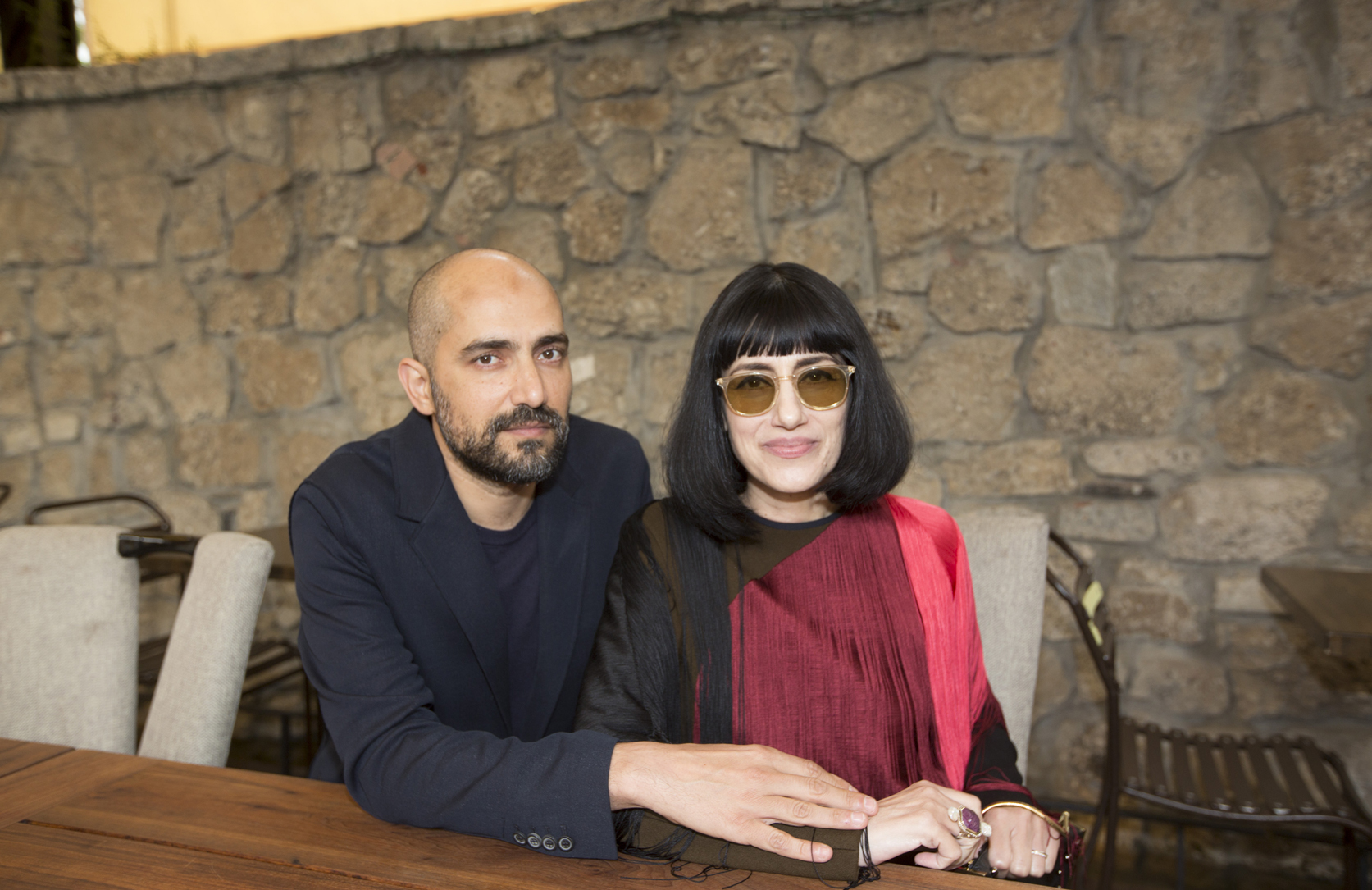
- Industry
Ronit Elkabetz: An Appreciation
Ronit Elkabetz, Golden Globe nominee in 2014 for her movie Gett: The Trial of Viviane Amsalem, died of cancer, age 51.
A leading force in the Israeli cinema, and also an admired and busy actress in France, her sudden passing brought accolades from around the world. Variety wrote: ‘Ms. Elkabetz … had a range that drew comparisons to Meryl Streep, the intensity of Maria Callas and, with her pale skin and raven hair, the haunting, sorrowful presence of Anna Magnani.’
Charles Tesson, the artistic director of the Critics’ Week program at the Cannes Film Festival, called her “an indispensable figure (…) responsible, in no small measure, for the richness of Israeli cinema that we have seen at Cannes for years.’
Elkabetz was born in the provincial immigrant town of Be’er Sheva in Southern Israel. Her working class parents came from Morocco. After her military service the raven haired, alabaster skinned beauty worked as a model. She started acting by accident in 1990. She thought that the movie casting call she answered was for a fashion commercial. She soon saw that cinema was her destiny. ‘I realized that up until then I had been homeless in my own life, and that now I had found my roof,” she said later in an interview.
Her next movie, Sh’chur secured her place in Israeli cinema. Her performance (an elder sister in an immigrant, superstitious Moroccan family) won Elkabetz her first of three Ophir awards, the Israeli equivalent of an Oscar. She won a best-actress Ophir in 2001 for her performance in Late Marriage as a divorced woman in love with a Georgian immigrant whose tradition-minded parents set about destroying their relationship.
Elkabetz took on a number of complex roles – an aging prostitute struggling to raise her teenage daughter in Or: My Treasure (2004 selected to the Cannes Film Festival’s Camera d’Or and the Grand Prize Prix Regards Jeune Award for Best Feature).
Her third Ophir was for The Band’s Visit (2007, winner of eight Ophir awards) a comedy about a group of touring Egyptian musicians who wind up, by accident, in a remote town in the Negev, where the cafe owner played by Elkabetz takes them in.
In the late 1990s, her place in the pinnacle of Israeli cinema secured, Elkabetz went to France, and started a parallel career in another country and language, from the ground up. She moved to Paris, to study with the avant-garde company Théâtre du Soleil, earning a living as a waitress. Her performance as the dancer Martha Graham in the play Martha impressed the directors of Made in France (2001), who offered her the part of Sonia, a woman seeking a sex-change operation.
Other leading roles in French TV and cinema followed, including Fanny Ardant’s Ashes and Blood (2009), and Andre Techiné’s The Girl on the Train, (2010) with Catherine Deneuve .
From acting in others’ movies, Ronit moved on to co-write, co-produce and co-direct with her younger brother, Shlomi a film trilogy based on the troubled marriage of their immigrant parents. In all three movies Ronit starred as Viviane, a role patterned after their mother, a hairdresser who married a controlling, conservative and pious postal worker.
The first, Take a Wife, (2004) saw Viviane marrying too young, and giving up her freedom. Shiva (or Seven Days, 2008) is set in the mourner’s house when there is a death in the family. The final movie Gett: The Trial of Vivianne Amsalem (2015) dealt with the heartbreakingly long process of trying to obtain a divorce (“Gett’). Critic Manohla Dragis wrote in The New York Times, that Ronit’s searing performance was ‘hypnotic, gripping cinema from start to finish … Ms. Elkabetz is never more effective than when she’s holding still, a stillness [that is] transfixing … transcendent.’
Gett won the Israeli Ophir for best movie, was nominated for the Golden Globes, and was Israel’s entry to the Academy Awards. When Ronit came to the Golden Globes with Gett she was struggling privately with the cancer that would soon take her life. She never mentioned it, and walked the red carpet at the 72nd Golden Globe Awards in a floor-length black gown and a buzz cut, a striking presence.
The news of her death at age 51, took many in Israel, France and elsewhere by surprise. Former Israeli President Shimon Peres spoke for all her admirers when he called Ronit “an extraordinary cultural ambassador for the state of Israel,” who “represented Israel with great pride, creativity and beauty.”
We are enriched that she was able to finish her trilogy and honored that she was part of the Golden Globe family. We mourn the loss of the too early end of the life and work of the unique talent and creative force that was Ronit Elkabetz.
See Ronit and Schlomi Elkabetz tell us about their collaborations:

